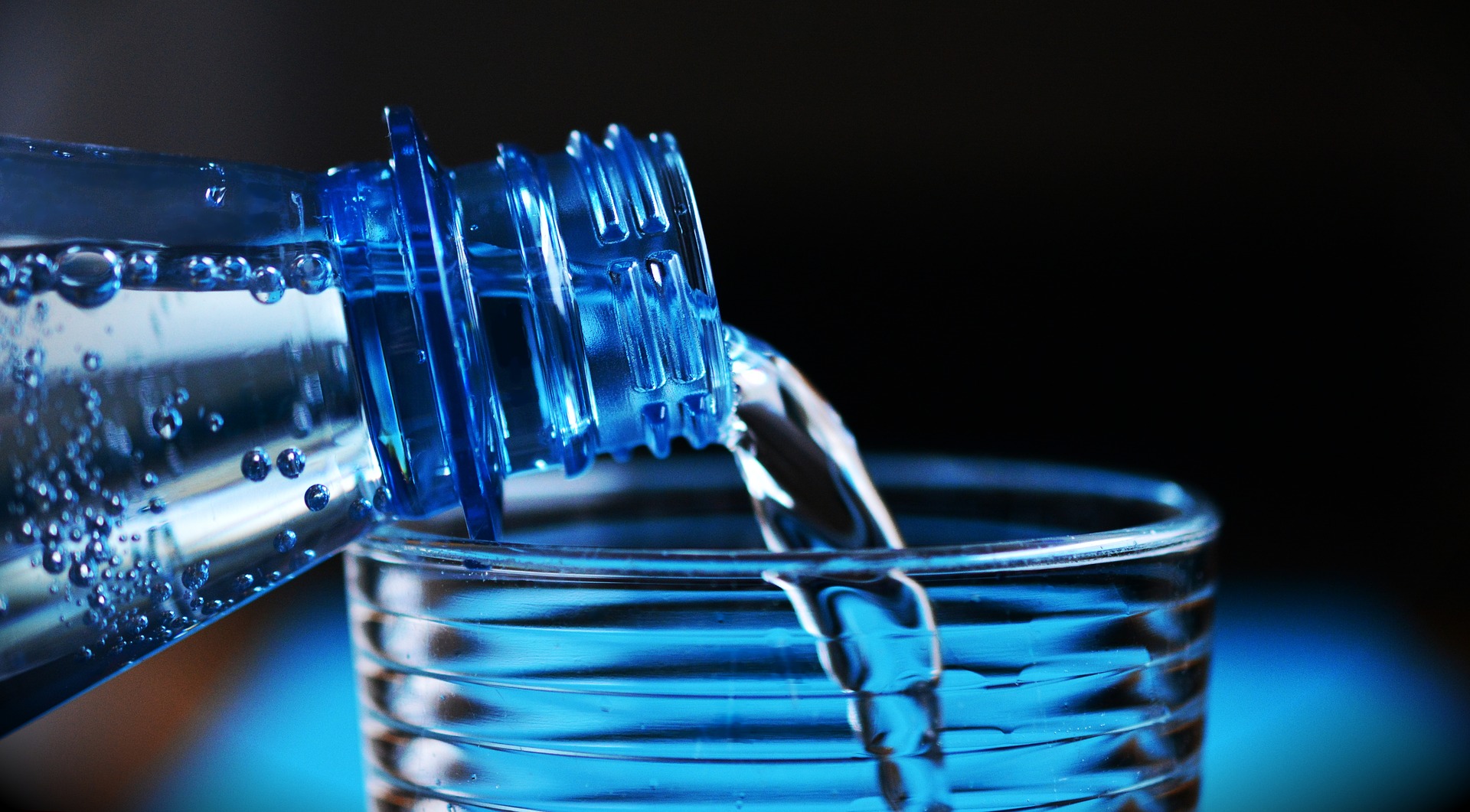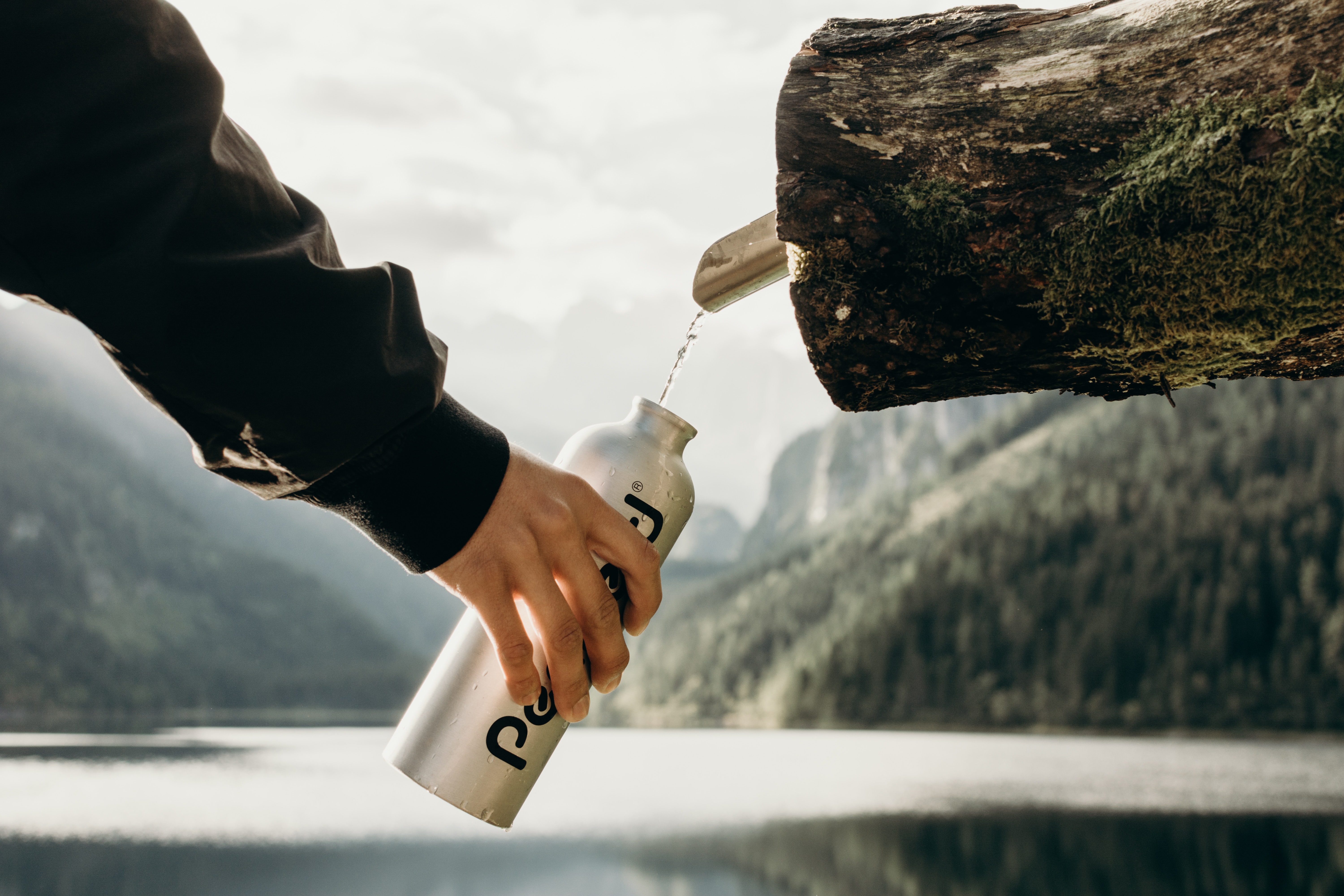Hydration
by Francesca / Liza – Tuesday, 16 July 2019
Did you know that up to 60% of the human body is water. Our blood is made up of around 93% water and our muscles are 73% water. It is needless to say, hydration is pretty important!
As endurance athletes we can slow our pace by 2% for each percent of body weight lost through dehydration. Yes, wow! So we really want to avoid dehydration if we want to perform at our best. An adequate level of hydration keeps up our blood volume, allows for muscle contractions to work smoothly, and is crucial for our regulation of temperature by- you guessed it – SWEATING!
But managing levels of hydration is not as straightforward as it might seem. Each of us sweats more or less during exercise and loses a different percentage of salts and minerals in the process. So let’s see what each of us can do to optimise our hydration for a hard training session or even a race event.

How do I identify dehydration?
Dehydration and fluid loss increases with higher ambient temperatures, humidity and intensity of your workout.
With that loss of fluids comes a steady decline in your performance and nasty symptoms start to creep up on you: cramps, muscle spasms, muscle soreness, a feeling of fatigue and impaired concentration. Not good news at all.
The first signs of dehydration?
You really want to nip it in the bud. Especially during races, you might actually be so distracted, that you might miss the first signs from your body. Learning how to be more in tune comes both with experience and an active focus. You’ll be moving closer to a state of dehydration if you feel thirsty, have a dry mouth or nose, a headache or if you feel lightheaded. Eventually you might be feeling irritable, experience muscle cramps and start to get confused.
How to avoid dehydration?
You can dehydrate in cooler climates as well if you do not replenish lost fluids. So being on top of your hydration is key for any hard effort. Hydration does not have to be complicated even though it does seem that it can be a constant battle for athletes. Fundamentally, just listen to what your body tells you and drink when you are thirsty. This might be harder if you are just starting with races and intense exercise. There is so much to pay attention to. You aren’t necessarily focused inwardly and distracted from the signs your body is sending you. For novice athletes it is therefore harder to realise that they are thirsty until it is too late and their performance goes down hill already. Whereas more experienced athletes might be more in tune with their bodies. For both it is worth having a good hydration plan for both, general exercise and races.
No-Nos:
In the lead-up to an event or hard workout people tend to drink way too much thinking they are going to be really hydrated. When actually they are washing out electrolytes crucial for a good performance Drink maybe a little bit more than you would, but don’t overdo it.
In the final 24 hours leading up to a race, you might want to drink some very strong electrolytes drinks which will help your body retain a little extra fluid for race day.

Staying hydrated:
For long-distance races
Start out with what you like on the bike. You cannot control what you pick up later on the course, but you can control what you start with.
Start with a bit of a plan for your hourly intake and try to stick with that. As you start to relax later on in the race you’ll also become freer to listen to your body.
Post-Race / After big training sessions
If you have loads of time off after a race then you really just want to focus on relaxing. It is however important to focus on rehydration after a big training session when you want to get back up and running the next day. You should think about the electrolyte content as well.
What about over-hydrating?
It happens all the time. While dehydration can get you into a world of trouble during a race or for your performance, your urge to drink will become so powerful that you are not likely to have severe consequences from dehydration in that setting. Where you can go wrong is in over consuming water low in electrolytes and dilute your system to get into hyponatremia.This is quite a severe condition that causes your brain to swell up and in the worst case can be fatal.
How do I dose my electrolytes?
Loss of Sodium and other electrolytes with fluid loss varies immensely from athlete to athlete. Given your sweat rate, your level of salt loss could still be low or high as well. If you want to know more about your sweat rate and your level of salt loss are, you can have this tested with perspiration testing and a sweat composition test.
For most of us going into a hard training session or race well hydrated and sticking to the hydration plan especially in the first part of the race should get us well on our way to finishing the race on out optimal performance level.
Next time you’re visiting Velocity, make sure you’re bringing enough to drink into the darkroom with you. Of course, water always does the job, but maybe try some coconut water to regenerate your muscle function and convert carbohydrates into energy more efficiently since it is high in potassium. Another option is one of the Vitamin Wells, which all contain high amounts of vitamins and minerals. „Hydrate“ by Vitamin Well helps you refill lost fluids and contains vitamin C, B12 and pantothenic acid which all contribute the reduction of tiredness and fatigue. So step up your hydration game and sweat on!
References:
www.globaltrinetwork.com/
https://www.globaltrinetwork.com/video/triathlon-training-explained-sweat-testing-and-hydration
https://www.globaltrinetwork.com/video/how-to-prevent-treat-dehydration-triathlon-training-explained
https://www.precisionhydration.com/blogs/hydration_advice
https://www.freeletics.com/en/blog/posts/minerals-magnesium-sodium-potassium/



Meet the New Faces Behind Our Power Team
/in Health, Lifestyle, Living in Zug, Living in Zurich, Power/by Casey3 Ways to Push Through a Tough Workout
/in Health, Lifestyle, Living in Zug, Living in Zurich, Power, Rides/by CaseyMeet Your New Power Coach, Julia
/in Health, Lifestyle, Living in Zug, Living in Zurich, Power, Rides/by Casey